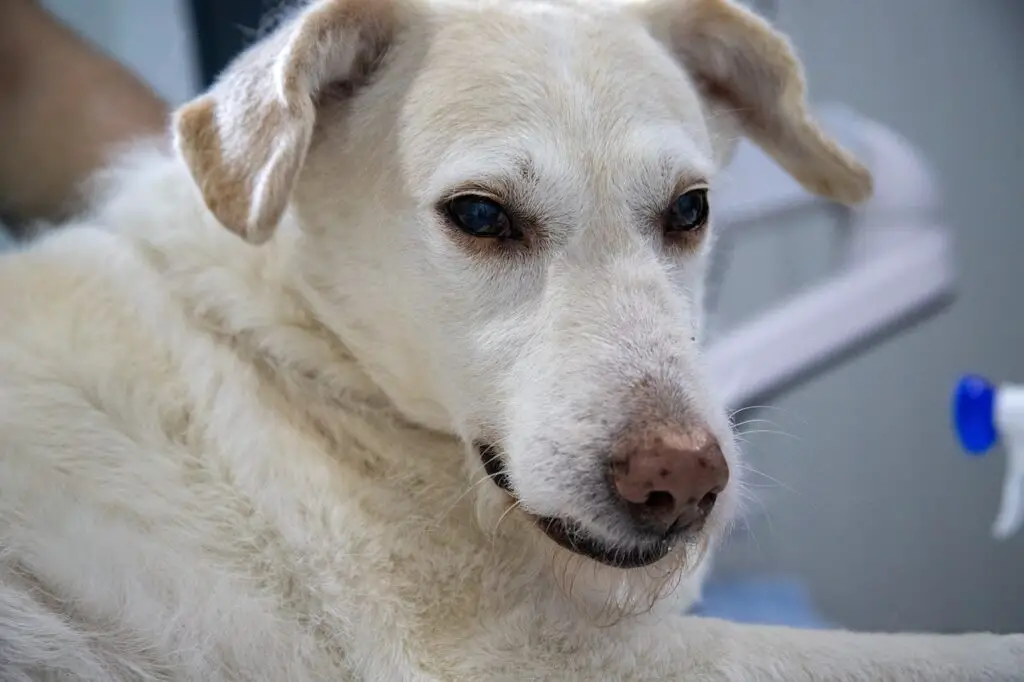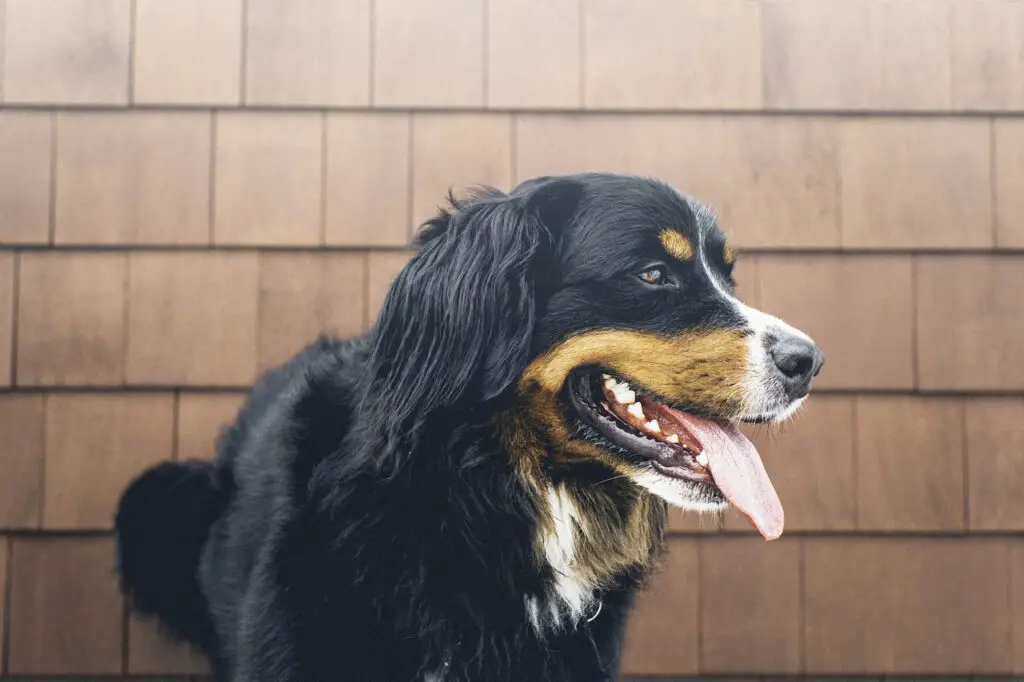Even with the best preventive measures in place, a vaccinated dog may still develop a cough.
This can be puzzling for pet owners who have taken all the necessary steps to protect their furry friend’s health.
In this article, we’ll explore the reasons why a vaccinated dog might still be coughing, including the limitations of vaccinations, exposure to other pathogens, and other potential causes of coughing.
Understanding these factors will help you identify the best course of action to maintain your dog’s well-being and ensure a swift recovery.
- My Dog Has Been Vaccinated, Why Is It Still Coughing?
- Can a Dog Still Get Kennel Cough Even Though Vaccinated?
- How Long Does Kennel Cough Last If Vaccinated?
- Can Kennel Cough Go Away On Its Own?
- Why Is My Dog Coughing But Acting Fine?
- Why Is My Dog Coughing But Not Sick?
- What Can I Give My Dog For Coughing?
- In Conclusion
My Dog Has Been Vaccinated, Why Is It Still Coughing?

Your vaccinated dog can still cough due to kennel cough. Even though your dog has been vaccinated, it may still develop a cough due to various reasons.
One possible explanation is kennel cough, a highly contagious respiratory infection that affects dogs.
The vaccination for kennel cough primarily focuses on protecting against the most common strains of the Bordetella bronchiseptica bacteria and the canine parainfluenza virus.
However, kennel cough can also be caused by other pathogens, some of which may not be covered by the vaccine.
The effectiveness of the kennel cough vaccine can vary depending on factors such as the specific strain of the pathogen, the dog’s immune system, and the timing of the vaccination.
It’s important to remember that vaccinations don’t guarantee 100% protection against all illnesses.
If your vaccinated dog starts coughing, it’s possible they have contracted kennel cough from an unvaccinated dog or a strain not covered by the vaccine. It could also indicate an unrelated respiratory infection or another issue causing the cough.
Can a Dog Still Get Kennel Cough Even Though Vaccinated?

Yes, a dog can still get kennel cough even though it has been vaccinated. The kennel cough vaccine primarily targets the most common strains of the Bordetella bronchiseptica bacteria and the canine parainfluenza virus.
However, there are several other pathogens that can also cause kennel cough, and the vaccine may not provide full protection against all strains.
It’s important to note that no vaccine is 100% effective, and the protection offered by the vaccine can be influenced by factors such as the dog’s immune system, the specific strain of the pathogen, and the timing of the vaccination.
While the kennel cough vaccine significantly reduces the risk of contracting the disease, it doesn’t completely eliminate the possibility.
If your vaccinated dog starts showing symptoms of kennel cough, consult with your veterinarian to determine the cause and receive appropriate treatment.
How Long Does Kennel Cough Last If Vaccinated?
In vaccinated dogs, the duration of kennel cough is typically shorter and less severe compared to unvaccinated dogs. The illness usually lasts for about 7-10 days in vaccinated dogs, whereas it can last up to 3 weeks or more in unvaccinated dogs.
However, the severity and duration of kennel cough can vary depending on the dog’s overall health, immune system, and the specific strain of the pathogen causing the infection.
It’s essential to consult with your veterinarian if your vaccinated dog shows symptoms of kennel cough, as they can provide appropriate treatment and guidance to ensure a faster recovery.
Remember that it’s crucial to keep your dog isolated from other dogs during this time to prevent the spread of the infection.
Can Kennel Cough Go Away On Its Own?
Kennel cough can sometimes go away on its own, particularly in cases where the infection is mild and the dog has a strong immune system.
The recovery process may take anywhere from one to three weeks, depending on the severity of the infection and the dog’s overall health.
However, it’s essential to monitor your dog closely and consult with a veterinarian if their condition worsens or doesn’t improve within a week.
In some cases, kennel cough can progress to more severe respiratory infections, such as pneumonia, which require medical intervention.
Your veterinarian may prescribe antibiotics if the infection is caused by bacteria, or cough suppressants and anti-inflammatories to manage symptoms and make your dog more comfortable during recovery.
Additionally, providing a stress-free environment, proper hydration, and nutrition can support your dog’s immune system and help them recover more quickly.
Why Is My Dog Coughing But Acting Fine?
If your dog is coughing but seems to be acting fine and has no other symptoms, it could be a sign of Kennel Cough.
Kennel cough is an upper respiratory infection caused by canine adenovirus type 2, canine parainfluenza virus, and Bordetella bronchiseptica bacteria.
It’s highly contagious and can spread quickly in places where dogs are in close contacts with each other, such as shelters, kennels, grooming facilities, or doggie daycares.
Symptoms typically include a dry hacking cough or gagging sound that may be accompanied by sneezing or reverse sneezing.
In some cases, dogs may also experience fever, lethargy, loss of appetite, or discharge from the eyes or nose.
Why Is My Dog Coughing But Not Sick?
In some cases, dogs may appear to be coughing but are actually not sick. This type of cough is known as a “reverse sneeze” and can occur when a dog’s airway becomes irritated or obstructed.
Reverse sneezing is usually harmless and doesn’t require any medical attention.
Common causes of reverse sneezing include allergies, environmental irritants, excitement, or even a foreign object stuck in the nose or throat.
It is important to note that if your dog has been coughing for an extended period of time, it may be indicative of a more serious condition that should be looked at by your veterinarian.
What Can I Give My Dog For Coughing?
Depending on the cause, there are several options for treating coughing in dogs.
For example, if your dog has an infection such as canine influenza or pneumonia, antibiotics may be prescribed to help clear up the infection.
If your dog is coughing due to allergies or environmental irritants, antihistamines may help reduce symptoms. In some cases, cough suppressants may also be recommended to help reduce coughing fits.
It’s important to note that over-the-counter medications should never be given to a dog without consulting a veterinarian first.
Some human medications can be toxic for dogs and could even make their condition worse. Your vet will be able to recommend the best course of action for treating your dog’s cough based on their individual needs and diagnosis.
In Conclusion
It’s crucial to understand that vaccinations, while essential for your dog’s overall health, may not provide complete protection against all strains of pathogens.
If your vaccinated dog is still coughing, it could be due to exposure to a different strain, an unrelated respiratory infection, or even a non-infectious cause.
Consulting with your veterinarian is the best course of action to determine the underlying issue and appropriate treatment.
By staying vigilant and seeking professional advice, you can ensure the well-being and happiness of your furry companion.





Leave a Reply